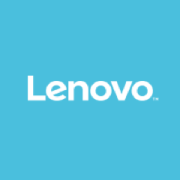Tower Servers provide businesses with powerful, standalone server solutions that are ideal for small to medium-sized enterprises, offering robust storage and processing capabilities.
These servers are designed to deliver high performance, scalability, and reliability. Tower Servers are typically used in SMB environments where space optimization and cost-effectiveness are crucial. With a variety of configurations and hardware options, they cater to different business needs, allowing companies to build a customized server infrastructure that maximizes efficiency and productivity.
What features should you consider?
What benefits or ROI should you expect?
In healthcare, Tower Servers are often deployed to manage patient records and imaging data, ensuring quick access and secure storage. Retailers use them to handle large databases of transactions and inventory management. Educational institutions rely on these servers to support learning management systems and administrative operations.
These solutions offer organizations enhanced performance, scalability, and reliability in a cost-effective package, making them a practical choice for businesses that require dedicated server infrastructure without extensive space or budget requirements.
| Product | Market Share (%) |
|---|---|
| HPE Proliant ML | 44.3% |
| Dell PowerEdge T-Series | 40.1% |
| Lenovo ThinkSystem Tower Servers | 13.1% |
| Other | 2.5% |











Tower servers are the largest, consisting of a vertical enclosure much like a desktop CPU tower. They require high cabling but don't need a lot of maintenance. This type of server is designed to fit underneath a desk and offers basic performance. It is relatively compact and inexpensive.
Rack servers are smaller than tower servers, and are designed to be positioned in a bay. This means you can stack multiple rack servers on top of each other. The bay can accommodate all the servers, storage devices, security and network appliances you need in a single, convenient space.
One of the benefits of rack servers is that having all components in one place allows the formation of a type of data center, providing the flexibility to install several servers in the same bay. They are, however, more expensive, which makes them better suited for medium-size businesses.
Blade servers are the smallest member of the server family. They are slim and compact and can be placed vertically into a specially designed case. Their downside is that they also offer the least power. Since they can be stacked vertically, you can add multiple servers, which makes them best for medium- to larger-sized companies.
The main difference between a tower server and a blade or rack is that tower servers provide functionality for small businesses. Data centers may need multiple servers snuggled into one room, whereas implementing a tower server is not different from having another computer in the office.
Generally speaking, tower servers are quieter than rack or blade servers. By producing on average less than 30dbA (decibels), they are quite enough to use in an office. To compare, a quiet office measures about 35dbA, while a data center can be as loud as a vacuum cleaner (up to 75dA). Rack servers usually get to about 38 dbA. Therefore, a rack server in a quiet office could make it difficult for workers to focus on tasks or talk with co-workers.
Tower servers are best suited for use in small businesses because, despite their small size, they offer strong capabilities.
Small businesses usually don’t have a dedicated data center room. If you are going to install a server under someone’s desk or in the corner of the office, tower servers are probably the best solution. They are also less likely to overheat and can even be put into a closet.
As opposed to rack servers, tower servers are not meant to be stacked on top of one another. While you can, in theory, put one server on top of the other, make sure you take into account the weight of the servers. While tower servers are lighter than conventional servers you may find in a data center, they are still heavy, and stacking them can cause overheating.
Choosing which server you will buy for your small business will depend on what you need the tower server for and the physical space you have, among other factors.
Once you decide to use a tower server, the next step is to find the right one for your company. There are plenty of tower server offerings on the market today, all of them with different specifications and functions.
Here are the features you need to look for, based on your company’s needs:
Since they are intended to serve other applications, tower servers are not used as workspaces. However, unlike your typical CPU, they offer expandability.